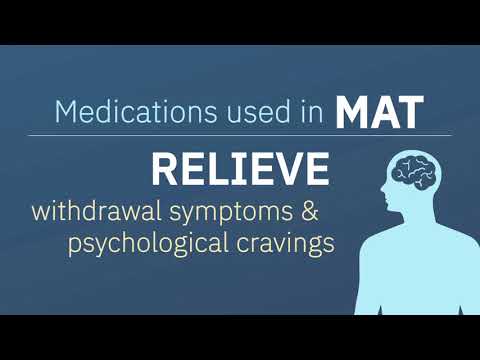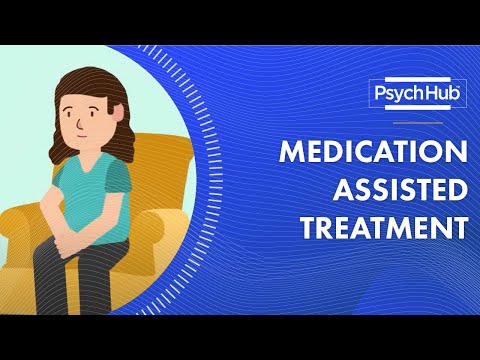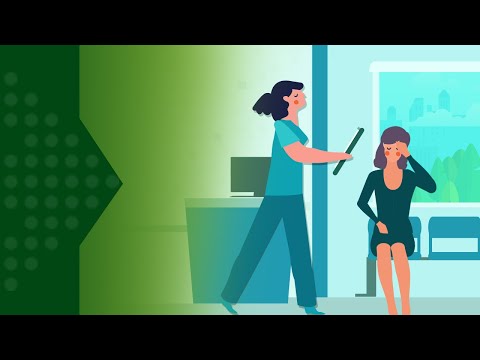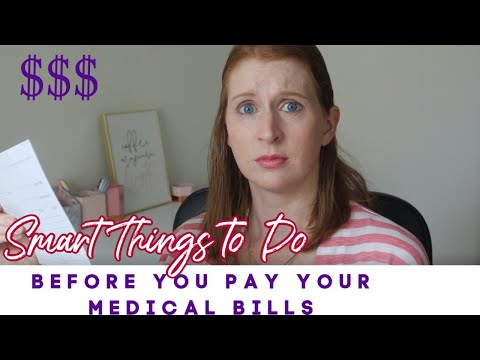Medication Assisted Therapy: Is MAT the Best Option?
Contents [show]
MAT, or medication assisted therapy is a treatment option for addiction that involves the use of medication. But is it the best option?
Checkout this video:
Introduction to MAT
MAT, or Medication-Assisted Therapy is a type of treatment for substance use disorders that involves the use of FDA-approved medications in combination with counseling and behavioral therapies.
There are three main goals of MAT:
1. To help people safely detox from harmful substances
2. To help people manage their cravings and abstain from substance use
3. To help people improve their overall health and well-being
MAT is an evidence-based approach to treatment that has been shown to be safe and effective for many people struggling with substance use disorders. If you or someone you know is struggling with addiction, MAT may be the best option for treatment.
What is MAT?
MAT is an evidence-based practice that uses FDA-approved medications, in combination with counseling and behavioral therapies, to provide a “whole-patient” approach to the treatment of substance use disorders.
The purpose of this approach is to stabilize patients so that they can engage in counseling and begin to address the underlying issues that led to their addiction. MAT is not a cure for addiction, but it can help patients stay in treatment and recover from their illness.
How does MAT work?
MAT is a combination of behavioral therapy and medications that are used to treat substance use disorders. The medications help to reduce cravings and withdrawal symptoms, while the therapy part helps to address the underlying issues that led to the addiction.
MAT is not a cure for addiction, but it can be an effective tool for recovery. It is important to remember that MAT is only one part of treatment, and it should be used alongside other methods, such as 12-step programs, individual counseling, and group therapy.
The benefits of MAT
MAT is an evidence-based practice that has been proven to be effective in treating substance use disorders. There are many benefits to MAT, including:
-Reduced cravings and withdrawal symptoms
-Improved treatment outcomes
-Increased retention in treatment
-Improved social functioning
-Reduced criminal activity
The challenges of MAT
MAT has been shown to be an effective treatment for opioid addiction, but there are some challenges associated with its use. One of the biggest challenges is that MAT requires close monitoring by a healthcare professional. This can be difficult to arrange, especially for people who live in rural or remote areas. Another challenge is that some people may not be able to take MAT because of other health conditions or medications they are taking. Finally, there is a risk that people who stop taking MAT may relapse into opioid use.
Who is a good candidate for MAT?
There are many factors to consider when deciding if MAT is the right treatment option for you. Some people may benefit more from other types of treatment, such as behavioral therapy or 12-step programs. And whileMAT can be an effective treatment for addiction, it’s not right for everyone.
Here are some questions to ask yourself when considering MAT:
– Do I have a history of successful recoveries with other methods?
– Do I have a strong support system in place?
– Am I committed to abstaining from drugs and alcohol?
– Am I willing to take medication as prescribed and undergo regular monitoring?
– Do I have other medical conditions that need to be taken into account?
If you answered “no” to any of these questions, MAT may not be the best treatment option for you.
Who should not use MAT?
People who should not use MAT
-People who are not committed to abstaining from drugs
-People who are pregnant
-People who have a history of severe mental illness
How to get started with MAT
Many people struggling with addiction to opioids are not aware of the option of Medication Assisted Therapy or MAT. MAT is a treatment method that combines behavioral therapy and counseling with the use of FDA-approved medications, such as buprenorphine and methadone, to treat addiction.
Behavioral therapy can help patients modify their behavior and adopt new coping skills, while the medication can help reduce cravings and withdrawal symptoms. This combination of therapies has been shown to be more effective than either therapy alone in treating opioid addiction.
If you or a loved one is struggling with an addiction to opioids, talk to your doctor about whether MAT might be the best treatment option.
The bottom line on MAT
MAT, or Medication Assisted Therapy is a treatment option for people struggling with addiction. It involves the use of medications, such as methadone or buprenorphine, in combination with counseling and behavioral therapies.
There is growing evidence that MAT is an effective treatment for addiction, and it is now considered the standard of care for people with opioid use disorders. MAT can help to reduce cravings and withdrawal symptoms, and it can also make it easier to stay in treatment and achieve long-term recovery.
However, not everyone is a candidate for MAT, and some people may prefer other treatment options. If you are considering MAT, it is important to talk to your doctor or a treatment providers to find out if it is right for you.
Resources for MAT
There are different types of resources for people considering or undergoing medication assisted therapy (MAT). These resources can provide information about MAT, support for MAT, and help with any other issues related to addiction and recovery.
Some resources for people considering MAT are:
-Books: There are many books available on the subject of addiction and recovery. Some of these books focus specifically on MAT, while others offer more general information about addiction and recovery.
-Websites: There are a number of websites that provide information about MAT. These websites can be a good place to start if you’re looking for general information about MAT.
-Support groups: There are many different types of support groups available for people considering or undergoing MAT. These groups can provide emotional support, practical advice, and/or information about MAT.
Some resources for people undergoing MAT are:
-Therapists: Therapists can provide individual or group counseling to help people through the process of recovery. They can also offer other services, such as family counseling or crisis intervention.
-Recovery coaches: Recovery coaches are people who have experience with addiction and recovery. They can provide support and guidance to people who are undergoing treatment for addiction.
-12-step programs: 12-step programs, such as Alcoholics Anonymous or Narcotics Anonymous, can be a helpful resource for people in recovery from addiction. These programs provide support and community to people in recovery from addiction.







